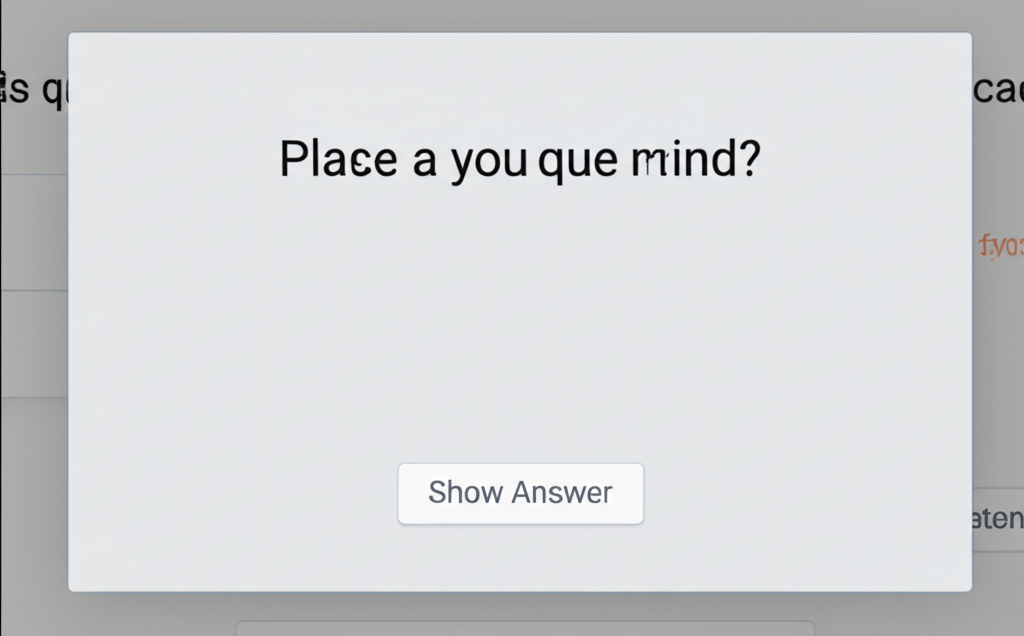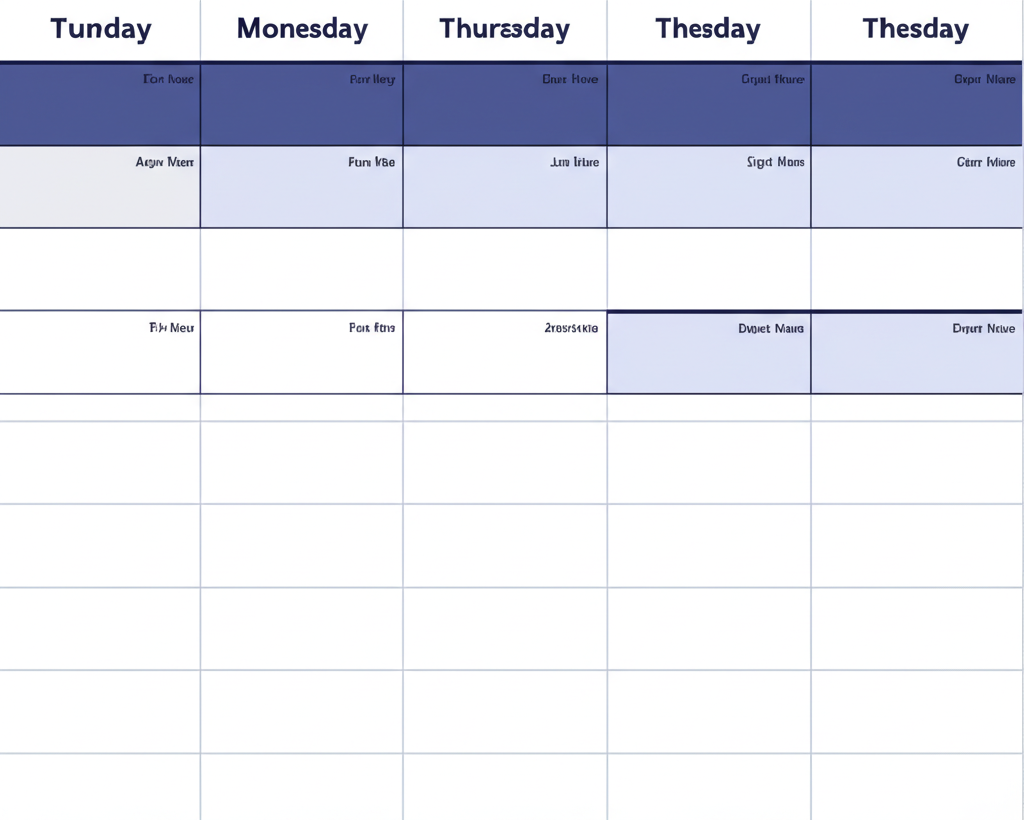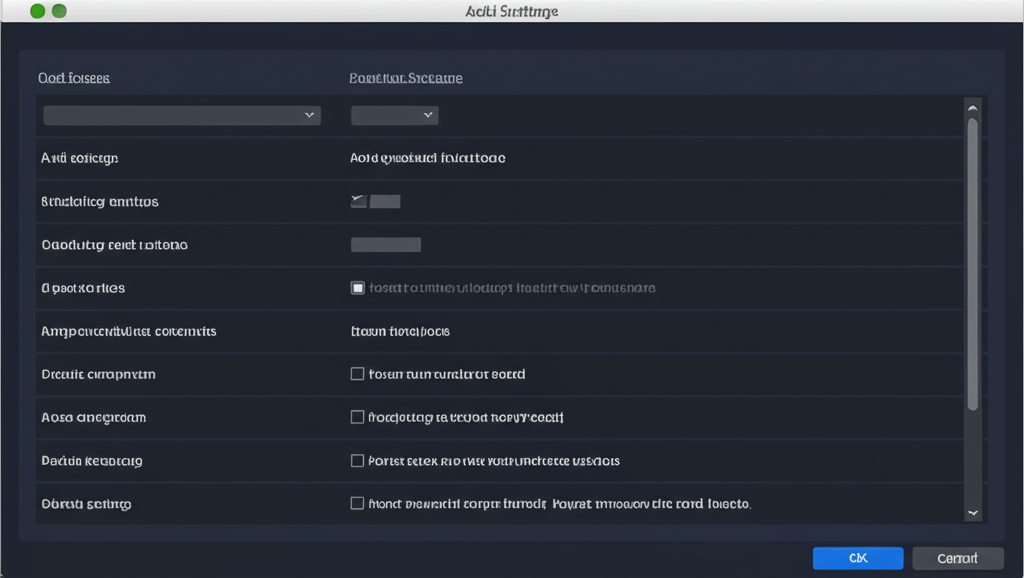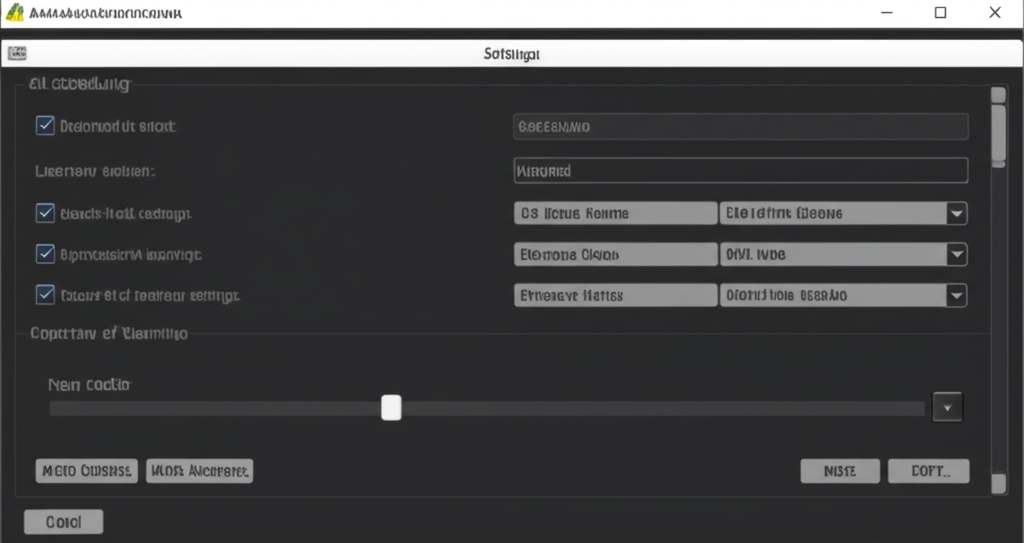Master MCAT Memorization: Your Expert Guide to Using Anki Effectively
Published on May 15, 2025

Hey future doctors! As an MCAT tutor here at Horizon med, I talk to countless premeds navigating the beast that is the Medical College Admission Test. One of the biggest hurdles? The sheer volume of information you need to memorize across biology, biochemistry, chemistry, physics, psychology, and sociology. It can feel overwhelming, like trying to drink from a firehose.
You spend hours poring over Kaplan books or watching Khan Academy videos, but how do you make sure all that crucial information sticks for test day? How do you move beyond passive review and build a rock-solid foundation of knowledge you can actually recall under pressure?
Enter Anki.
If you've spent any time in premed forums or talked to current medical students, you've likely heard the name. Anki isn't just another flashcard app; it's a powerful, science-backed learning tool that can revolutionize your MCAT content review. But like any powerful tool, you need to know how to wield it effectively.
That's where we come in. At Horizon med, we guide students not just on what to study, but how to study efficiently. This post is your expert guide to leveraging Anki for the MCAT, transforming your study sessions from passive rereading into active, efficient learning.
What Exactly Is Anki?
At its core, Anki is free, open-source flashcard software available on desktop (Windows, Mac, Linux), web, and mobile devices (AnkiMobile for iOS, AnkiDroid for Android). But calling it just "flashcards" is like calling a scalpel just "a knife." What makes Anki special are the built-in algorithms based on two core principles of cognitive science: Active Recall and Spaced Repetition.

Active Recall (AR): Think about how you typically study flashcards. You look at the front, maybe passively recognize the answer on the back, and flip to the next one. Anki forces you to do better. When you see the prompt (front of the card), you must actively retrieve the answer from your memory before revealing it. This effortful retrieval process significantly strengthens the memory trace, making it much more durable than simply rereading or recognizing information. It's the difference between passively watching someone lift weights and actually lifting them yourself – only one builds muscle.
Spaced Repetition (SR): Have you ever crammed for an exam, only to forget most of it a week later? That's the "forgetting curve" in action, first described by Hermann Ebbinghaus back in the 19th century. We naturally forget information over time unless we review it. Spaced Repetition combats this curve intelligently. Based on how well you recall information (you'll rate each card as 'Again', 'Hard', 'Good', or 'Easy'), Anki's algorithm schedules the next review for that specific card. Cards you know well get pushed further into the future, while cards you struggle with reappear sooner. This ensures you review information right around the time you're likely starting to forget it, optimizing retention without wasting time on things you already know cold.
Together, AR and SR make Anki an incredibly efficient engine for building and maintaining long-term knowledge – exactly what you need for the MCAT.
Why Anki is a Non-Negotiable Tool for MCAT Success
Okay, so Anki uses fancy learning principles. But why is it so effective specifically for the MCAT, and why do we at Horizon med recommend it so highly?
It's Built on Solid Science
Decades of cognitive science research support the power of Active Recall (often called the "testing effect") and Spaced Repetition (the "spacing effect"). Studies consistently show that testing yourself and spacing out reviews lead to significantly better long-term retention than passive rereading or massed practice (cramming). For instance, research highlights that spaced learning schedules promote not just memory for facts but also the generalization of concepts, crucial for applying knowledge on the MCAT [1]. Combining these techniques, as Anki does, is arguably the most efficient way known to science for memorizing large amounts of information [2].
Unparalleled Efficiency
The MCAT covers an immense breadth of material. Creating your own comprehensive flashcards would take hundreds of hours – time better spent on practice questions and understanding concepts. Thankfully, the pre-med community has created high-quality, pre-made Anki decks covering virtually all high-yield MCAT content. By using a well-regarded deck (more on this below), you leverage the collective effort of countless students and ensure you're focusing on what matters most. Anki's SR algorithm then optimizes your review time, ensuring you only see cards when necessary, drastically cutting down on wasted effort compared to manually reviewing notes or traditional flashcards.
Reduces Cognitive Load
Planning what to review and when can be mentally taxing. Anki takes this burden off your shoulders. You don't need to guess which topics need refreshing; Anki presents you with the exact cards needing review each day based on its algorithm. This frees up your mental energy to focus on the actual learning, critical thinking, and practice passages that are essential for a top score.
The Med Student Standard
Walk into any medical school lecture hall (virtually or physically), and you'll find the vast majority of students rely on Anki daily. Its effectiveness for handling the sheer volume of information in medical training is undisputed. Using it for the MCAT not only prepares you for the exam but also builds study habits that will serve you well throughout your medical career.
Integrating Anki effectively can seem daunting at first, but the payoff is huge. If you're feeling unsure how to fit it into your already packed schedule or how to use it most efficiently, that's something our Horizon med tutors excel at helping students navigate. We can build a personalized study plan that incorporates Anki seamlessly alongside your other resources.

How to Integrate Anki into Your MCAT Study Plan: A Practical Guide
Ready to harness the power of Anki? Here's a step-by-step approach we recommend at Horizon med:
Step 1: Get Set Up
- Download the Anki desktop application (it's free!) from the official Anki website. While mobile versions exist, the desktop app offers the most features, especially for managing decks and settings. Syncing across devices is easy once set up.
- Familiarize yourself with the basic interface: creating decks, adding cards (though you'll primarily use pre-made ones), Browse, syncing, and studying.
Step 2: Choose Your Weapon - The AnKing MCAT Deck
For the MCAT, we strongly recommend using a comprehensive, high-quality pre-made deck. The AnKing MCAT Overhaul Deck is the gold standard. It's a collaborative effort that meticulously organizes and tags thousands of cards based on popular resources like the Kaplan MCAT books, Khan Academy videos, and high-yield concepts.
- You can find the latest version on the AnKing website or Reddit.
- Download the deck file (.apkg) and import it into Anki (File -> Import).
Step 3: Integrate Anki with Content Review
- Start Early: Begin using Anki right alongside your content review phase. Don't wait until you've "finished" learning everything.
- Pair with Resources: Choose your primary content review resource(s) – typically either the Kaplan 7-Book Subject Review set or the Khan Academy MCAT video collection.
The Workflow:
- Read a chapter in your Kaplan book OR watch the corresponding set of Khan Academy videos on a specific topic.
- Go into the Anki browser (click 'Browse' on the main screen).
- Find the corresponding tag for that chapter/topic in the AnKing deck (the tags are usually well-organized, e.g., Kaplan::Behavioral_Sciences::Chapter_1).
- Select all the cards under that tag and "Unsuspend" them. Suspending means the cards are inactive; unsuspending makes them available to appear in your study queue.
Goal: Aim to unsuspend and learn roughly 100 new cards per day. This is a general guideline; adjust based on your timeline and capacity. Some days might be more, some less.
Consistency is KING: This is the most critical part. You MUST do your Anki reviews every single day. Skipping days allows the forgetting curve to win and leads to a massive pile-up of reviews, which is demoralizing and ineffective. Even 20-30 minutes daily is better than skipping. Make it a non-negotiable part of your routine.
Step 4: Settings and the FSRS Algorithm
Anki's settings can seem complex. While the default settings work, optimizing them, especially using the newer FSRS algorithm, can significantly improve efficiency.
Recommended Settings:
We recommend setting your New Cards/day limit initially to 9999 (you'll control the flow by unsuspending) and adjusting your review limits. Ensure your learning steps are relatively short, like '15m 1d' or similar.


Understanding FSRS: FSRS stands for "Free Spaced Repetition Scheduler." It's a more advanced algorithm than Anki's default (SM-2). FSRS analyzes your personal review history (how often you press Again, Hard, Good, Easy for cards of varying difficulty) to tailor the spacing intervals specifically for you.
- Enable FSRS: Go into your Deck Options > Advanced (or FSRS in newer versions) and toggle it on.
- Set Desired Retention: Choose a target retention rate (e.g., 90%). This tells FSRS how often you want to successfully recall cards when they're due. Higher retention = shorter intervals = more reviews per day. 85-92% is often a good balance.

- Optimize Parameters: FSRS needs data to work best. Once you have a decent number of reviews logged (ideally 1000+), click the "Optimize" button in the FSRS settings. This runs a calculation to find the parameters that best fit your memory patterns. Re-optimize every few weeks or monthly as you log more reviews and potentially change your study habits.
- Use Buttons Correctly: FSRS assumes "Hard," "Good," and "Easy" mean you correctly recalled the information (with varying degrees of ease). Only use "Again" if you failed to recall the answer. Misusing "Hard" for forgotten cards confuses the algorithm.
Optimizing FSRS can feel a bit technical, and choosing the right desired retention involves balancing workload and memory strength. This is another area where personalized guidance from a Horizon med tutor can be invaluable, ensuring your Anki setup is working optimally for you.
Step 5: Keep Going!
- Continue unsuspending new cards as you progress through content review.
- Maintain your daily reviews religiously, even as you transition into practice questions and full-length exams. Anki ensures you don't forget the foundational knowledge you worked so hard to learn. Keep doing reviews right up until your test day!
Anki Isn't Magic, But It's Close
Anki, powered by active recall and spaced repetition, is the single most effective tool for mastering the vast amount of memorization required for the MCAT. By using a high-quality pre-made deck like the AnKing Overhaul and integrating it consistently into your daily study routine, you build a durable, accessible knowledge base.
Remember, Anki works best as part of a comprehensive study plan that also includes understanding concepts deeply, working through practice passages, and taking full-length practice exams. It's a powerful tool for the memorization component, freeing up your time and mental energy for higher-order thinking and test-taking strategy.
Feeling overwhelmed by MCAT prep? Not sure how to structure your time, integrate Anki effectively, or tackle challenging concepts? The expert tutors at Horizon med are here to help. Sign up for a free 30 min consultation and let's see how we can help you achieve your MCAT and med school goals. You've got this!
References:
- Vlach, H. A., & Sandhofer, C. M. (2012). Distributing learning over time: The spacing effect in children's acquisition and generalization of science concepts. Child Development, 83(4), 1261–1271. https://doi.org/10.1111/j.1467-8624.2012.01781.x
- Kang, S. H. (2016). Spaced Repetition Promotes Efficient and Effective Learning: Policy Implications for Instruction. Policy Insights from the Behavioral and Brain Sciences, 3(1), 12–19. https://doi.org/10.1177/2372732215624708
Related Articles
Cracking the Code: How to Score in the 99th Percentile on MCAT CARS
Learn proven strategies to master the Critical Analysis and Reasoning Skills section.
MCAT Study Schedule: 3-Month Intensive Plan
Coming soon: A week-by-week guide to preparing for the MCAT.
Balancing MCAT Prep with Undergraduate Coursework
Coming soon: Practical tips for managing your time effectively.
Ready to Master the MCAT?
Our expert tutors can help you create a personalized study plan that incorporates Anki and other proven strategies.
